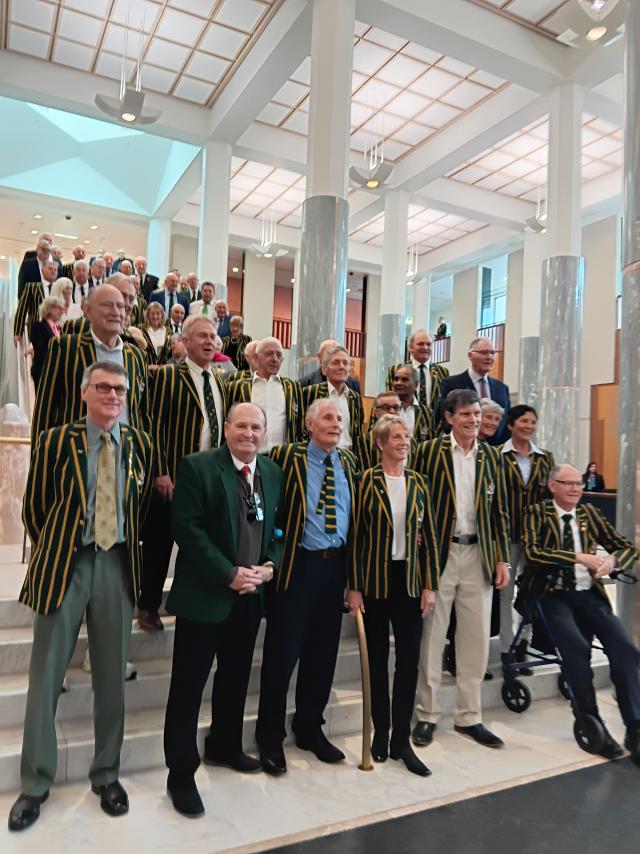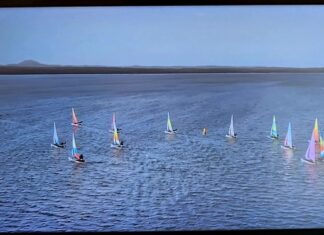Last week’s interview by Noosa Today editor Margie Maccoll with Sunshine Coast Olympian Benny Pike about his experiences at both the 1980 Moscow Olympics and the belated ‘welcome home’ of the athletes at the Australian Parliament recalls an issue which divided Australia greatly.
The Moscow Olympics are primarily remembered for a large-scale boycott led by the United States in protest of the Soviet Union’s invasion of Afghanistan. Approximately 65 nations joined the US boycott. In spite of the boycott, 81 countries did send athletes to compete.
Prime Minister Malcolm Fraser, a grazier from the Western District of Victoria, was adamant that the Olympic athletes accept his government’s request to boycott those Olympics but neither expected nor requested ‘trade’ between Australia and the Soviet Union be curtailed.
The Australian government had contributed $700,000, including $200,000 for pre-Olympic competition. The remaining $500,000, however, was withheld because it was made clear no athletes were to receive funds to compete in Moscow.
The Australian Olympic Federation (AOF) used investment funds for the team and purchased a building with the half-million-dollar government grant.
A Gallup poll in mid-February showed 52% for and 4%c against a boycott; the AOF deferred an executive board meeting until 23 May. After much deliberation the vote was 5-5. The decision ‘to go’ to Moscow was cast by Lewis Luxton, Honorary IOC member on the AOF Board; he had the deciding vote, one day before the IOC’s deadline from nations throughout the world. [81 nations attended; 26 nations did not.]
Benny Pike who ‘went to the Games’ has told how the media reported the anguish and dilemma of athletes, some selected for their first Olympic Games.
In an interview in 1982 Queensland swimmer, Tracey Wickham revealed her emotional stress as a 17-year-old as the weeks went by; she told her mother, “I can’t go. I just can’t concentrate properly. If I’d gone to the Moscow Games. I know I wouldn’t have swum as well as I wanted. I’d have retired straight after because I ‘d have disliked swimming”.
Four-time Olympian Raelene Boyle, now living on the Sunshine Coast, had been selected for the 200 and 400 metre track events, wrote about watching while in Australia the Opening Ceremony in Moscow on television: “I wept like a baby as the teams walked into the stadium. I remembered what it was like to walk behind the flag (or in my case in Montreal, carry it), and feel like you’re floating on air.”
Pre-Olympics, Raelene wrote: “One night at training the stress finally got to me. … The pressure is too much. Not only was the controversy on the front pages of the newspapers almost every morning but the issue had plunged the dagger into the heart of Australian athletics, dividing colleagues in the Australian public. I had even received death threats.”
Track sprinter Denise Boyd (nee Robertson), now residing on the Sunshine Coast, left Australia six weeks prior to the Moscow Olympics to train and compete in Europe. She told Noosa Today that “Personally I did not have any friends or family who thought I should not compete in Moscow. The stress for me was the decision the AOF would make on the team’s participation at the Games.” She recalled feeling how difficult it would have been for other Olympians who were actually in Australia hearing and reading about issues almost daily.
Denise and swimmer Max Metzker both carried the flag – not that of Australia, but the Olympic flag in the Opening Ceremony.
Denise was in Canberra for the ‘welcome home’ gathering on July 25 and appreciated greatly that many fellow Olympians appreciated that their efforts and achievements in Moscow had finally been acknowledged.
Even today, it is not widely known that further pressure was put on athletes to make decisions personally about the ‘boycott’, Letters from Prime Minister were sent to numerous Olympians offering them funds to compete in ‘alternative events.’ Tracey Wickham wrote: “I received $6,000 for not going to the Moscow Olympics.”
Raelene Boyle also received funds. She writes in her autobiography: “… the entire Moscow imbroglio ended up leaving a bitter taste in my mouth… For years afterwards … I felt [what] politicians and politics had done to me, my career and the sport I loved. Not even a cheque that arrived on Christmas Eve that year for $6,000 from the federal government .. for withdrawing in Moscow would change my mind”.
In March 2008, at a time when a boycott of the Beijing Olympic Games was being mooted, Malcolm Fraser for the first time acknowledged that the attempted boycott of the 1980 Moscow Olympics was wrong – it was “bad and divisive policy’.
Mr Fraser said allies of the USA were not consulted and it became a matter of deciding whether to support America: “I never thought it was good policy because policy, to be successful, needs to be sustainable. … The impact on athletes was terrible …The individual choices that were made created divisions within sports and between sports. It’s not something I would want to see repeated.”
[Ian Jobling is Honorary Patron of the Queensland Centre of Olympic and Paralympic Studies at the University of Queensland]








